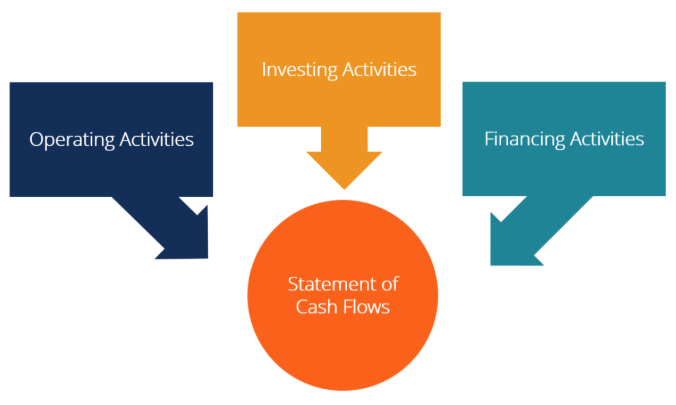
Since the risk is greater, the factor requires a larger reward to factoring your invoice. With an invoice factoring arrangement in place, the factoring company will notify your customers of it. Your clients will also be contacted by the factoring company to make payment. There is no way to conceal the fact that you have factored your invoices.
- Become an introducer and together we’ll help your clients go further with fast access to short and long-term lending.
- This financing option is best for businesses owners whose customers are other businesses.
- Factor rates reduce your profit from sales, and other fees contribute to the cost of capital too.
- However, as with any financial agreement, business owners are always advised to carry out due diligence before working with any service provider.
Invoice factoring is an expensive way to get a cash injection for your company. Factor rates reduce your profit from sales, and other fees contribute to the cost of capital too. If there are issues with your clients’ credit histories, invoice factoring may not be easily accessible by your business.
On the other hand, invoice financing works like a traditional loan via a relationship between the lender and the business creating the invoice. Companies can use the money from invoice factoring What is invoice factoring for whatever they need. Once the client pays the invoice, the invoice factoring company will take out their fees and interest and then pay the company any remaining funds they are owed.
Invoice factoring pros and cons
The factoring company takes on the responsibility of collecting payments from customers, freeing up the business to focus on other important tasks such as sales and operations. This can be particularly helpful for businesses that don’t have dedicated accounting or collections departments. However, different factoring companies determine what invoice factoring fees they’ll include, and these fees can drive up the cost of their services. Invoice factoring is important because it offers fast funding for businesses that qualify.
Unlike many independent factoring companies who work with multiple funding sources, a bank acts as a direct source of funds and eliminates the middleman. CHOCC factoring is a type of invoice factoring where you still chase payment for the invoices you’ve factored, rather than the factoring company doing so. Our easy to set-up factoring lines allow customers access to the working capital they need, quickly and easily.
- Most factors won’t buy invoices that are already past due, and many won’t buy invoices whose payment terms exceed 90 days.
- Now that you have a taste of the level of background checks involved in invoice factoring, it is easy to see how this application process for invoice factoring can take over a week from start to finish.
- In the 1600s & 1700s when English colonists traveled across the sea to America, London would advance funds to purchase goods.
- In summary, small businesses are more likely to qualify for invoice financing than a bank loan.
Instead of waiting for customer payment, factoring provides you with immediate working capital so you can catch up on bills, meet payroll, maintain daily operating expenses, and grow your business with ease. A steady cash flow is essential for the survival of any small business and invoice factoring provides companies with the cash injections they need. Invoice factoring also takes over the credit collection process, which gives small businesses more time to focus on other things like growing the company.
Invoice Factoring Process
Team up with us to offer all your customers the fast, flexible lending they need. Trusted by over 70,000 small businesses across the U.S., Fundbox is an example of a company that can help across multiple industries. We have a reputation of excellent customer support and satisfaction, with a TrustScore of 9.7 out of 10 and an overall rating of “Excellent” on TrustPilot, and an A+ rating with the Better Business Bureau. On the customer support side, you’ll probably want to ask the company about its customer support, since your clients will be directly interacting with them. Find out how they will interact with your clients and whether the customer experience will be acceptable for your valuable clients.
Truck driver shut down after train-derailing crash in Tennesee Big I … – Overdrive
Truck driver shut down after train-derailing crash in Tennesee Big I ….
Posted: Fri, 18 Aug 2023 17:33:38 GMT [source]
Common payment terms are 30 days, 60 days, and 90 days (that is, payment is due 30, 60, or 90 days after you deliver your goods or services and issue the invoice to your customer). Cash flow is a measure of the amount of funds coming into a business in a given time period (typically a month). Cash flow may be either positive or negative, depending on whether the business is bringing in more or less money than it spends in that period.
Why Accountants in Australia Should Consider Private Lenders as an Alternative Finance Option?
As you begin to learn about invoicing factoring, you will see that it’s often compared to invoice financing, as they are both similar ways to get funding based on outstanding invoices. Many businesses have made invoice financing and factoring common practice. In simple terms, invoice factoring is a financial transaction that turns account receivable invoices into immediate cash. Converting receivable assets into accessible working capital is a tremendous boost to company finances as business customers increasingly delay payments to benefit their cash flow situation. Invoice factoring unlocks the money your business has already earned so you can access working capital within hours of issuing an invoice to a creditworthy customer.
Our innovative invoice finance platform offers an easy solution for businesses to manage contracts, invoices, and timesheets. If you’re interested in learning more about the features and benefits of our services, don’t hesitate to book a consultation. Finally, invoice factoring helps open the door for startups that want to start working with larger clients.
Origination fee, otherwise known as draw fee, is a flat rate fee charged at a percentage of each factored invoice. It is a fee for processing your factoring application and opening an account for your business. Recourse and non-recourse factoring are two types of invoice factoring with a number of differences.
Therefore, this compensation may impact how, where and in what order products appear within listing categories, except where prohibited by law for our mortgage, home equity and other home lending products. Other factors, such as our own proprietary website rules and whether a product is offered in your area or at your self-selected credit score range can also impact how and where products appear on this site. While we strive to provide a wide range offers, Bankrate does not include information about every financial or credit product or service. Since it does not require collateral, invoice factoring is helpful for small and growing businesses or anyone who finds it hard to qualify for bank loans.
Financing Options for Healthcare Providers
Most factors won’t buy invoices that are already past due, and many won’t buy invoices whose payment terms exceed 90 days. In a typical business situation, a company makes a sale, creates an invoice and sends it to the customer. Thirty, 60 or 90 days after the good or service is delivered, as stipulated on the invoice, the buyer pays for the purchase, and the company gets its money. Once the factoring company receives full payment of the invoice, they pay the balance of what is owed to the seller, keeping a percentage of the total invoice amount as revenue. Recourse factoring is a type of invoice factoring where bad debts are charged back to you by the factoring company. Payment terms refers to the agreed timeframe your customer has to pay you after you have invoiced them.
It’s crucial to understand the pros and cons of invoice financing compared with alternative financing options. With invoice factoring, however, the decision-making process is fast and straightforward and applications are approved or declined within days or weeks rather than months. With invoice discounting, the Supplier receives a cash advance for the invoice but retains responsibility for chasing the Buyer for payment. When you use invoice factoring, you will always lose a portion of your payment. If you’re not ready to part with that amount and you’re prepared to wait for your customer’s payment, invoice factoring may not be your ideal choice. For more information about these specific fees and what they mean, read our full articles on understand invoice factoring agreements and invoice factoring float and other hidden fees explained.
Invoice factoring vs. line of credit
For instance, the factoring agreement may stipulate that the arrangement is non-recourse only if your customer becomes insolvent. Invoice factoring, on the other hand, does not require businesses to provide expensive collateral or to have stellar credit histories themselves. The factor rate, which is also known as factoring rate, discounting rate or discount rate, usually ranges from 1% to 5%. Suppliers can take advantage of such programs when they are provided by their buyers. In other instances, they may adopt other methods to secure early payment on their invoices. Modern businesses can use a variety of financial instruments, tools, and techniques to optimize their cash flow, improve their working capital position and realize their business plans.
The entire process can take as quickly as a couple hours, meaning, if approved, you can draw funds the same day, and receive funds as soon as the next business day. Spot factoring is the selling of a single invoice to a factoring company. It is intended for companies that issue high-value invoices in small volumes. Spot factoring is best used by construction companies, or other businesses that receive large contract orders or that choose to fund only their largest receivables when cash flow is required.

While invoice factoring arguably checks the box of speed, it may not be best in terms of cost and flexibility. Unlike loans, there is no obligation to make a certain amount of repayment by a certain date. With revenue-based financing, you never have to worry about the situation where debt commitments drag your company down and hinder growth. Before applying for invoice factoring, it would be advisable to consider whether the cash advance obtained is worth the time invested in administrative procedures.
A business with creditworthy customers may be eligible to factor even if it can’t qualify for a loan. However, an independent factor must borrow from a third party in order to fund your invoices. That can increase risk and costs for your business, and can reduce efficiency. Most factoring agreements include a “recourse” provision, meaning the company selling the invoice must return some or all of an advance cash payment if a customer doesn’t pay. Conversely, the factor will assume the risk of nonpayment in a non-recourse factoring arrangement.
eCapital Recognized Among U.S Fastest-Growing Private … – ABL Advisor
eCapital Recognized Among U.S Fastest-Growing Private ….
Posted: Wed, 16 Aug 2023 11:32:46 GMT [source]
Headquartered in Miami, Florida, eCapital is an innovative leader in providing flexible, customized cash flow to businesses. While the client business receives immediate payment for an invoice, the factoring company is responsible for managing invoice payment processing and collection. In exchange for fast payment and being relieved of collection responsibilities, the client business gives up a small percentage of the invoice amount as the factoring fee.


